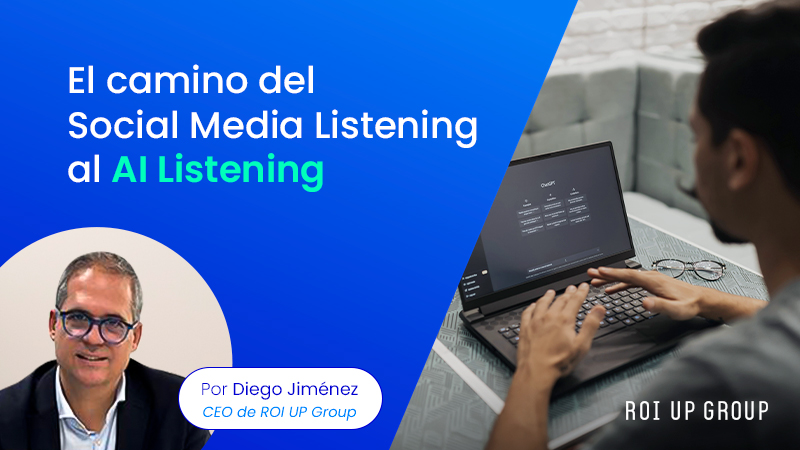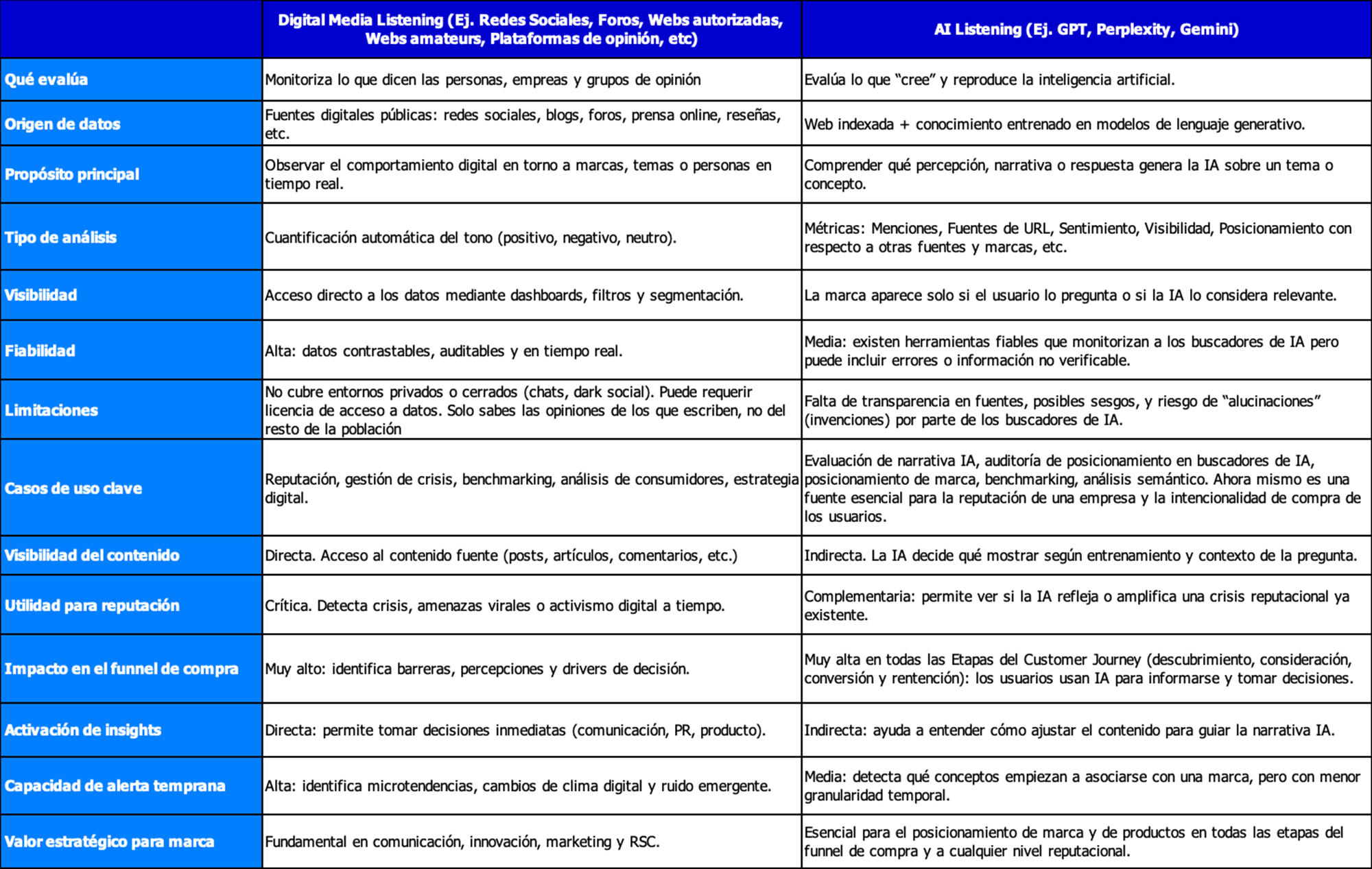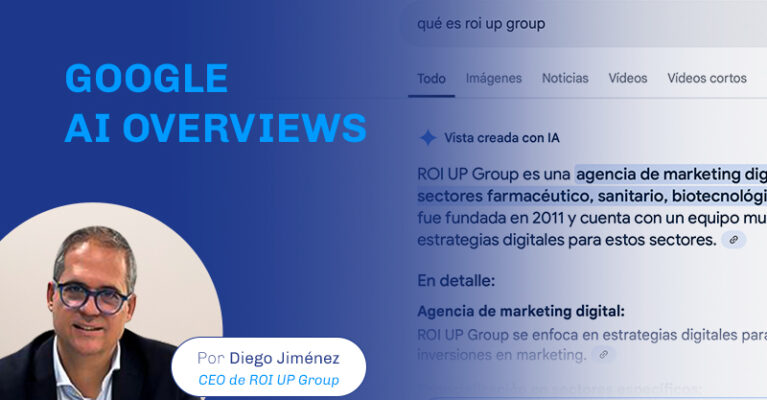
By Diego Jiménez, CEO of ROI UP Group
For years, Social Media Listening has been key for brands to understand what is being said about them on social networks, forums, and review platforms. While it’s still useful, it’s no longer enough. The new digital ecosystem demands that we go further: we now need to listen to artificial intelligence as well.
Today, users not only share opinions, they also ask direct questions to tools like ChatGPT, Gemini, or Perplexity, among others, which generate automated responses about brands, products, and spokespersons. And these responses are already shaping brand reputation, often with more impact than a viral tweet or a review.
From Listening to Users… to Listening to AI
Social Media Listening still provides value by measuring conversation tone, detecting micro-crises, and analyzing real-time trends. But in light of this new reality, a key question emerges: How does artificial intelligence describe our brand when someone asks about it?
This is where AI Listening comes in — an emerging discipline that analyzes the narratives generated by AI: whether they align with corporate messaging, accurately reflect the brand’s purpose and key messages, and what sources are being used to build those responses.
What Kind of Results Does AI Return?
Brands may come across:
- Accurate and coherent responses.
- Messaging aligned with their official narrative.
But also:
- Out-of-context or geographically misplaced descriptions.
- Inaccurate or fabricated claims.
- Contradictions with their key messages.
This is why concepts like sentiment, mentions, and citations are taking on new importance. The tone with which AI speaks about you, the sources it cites, and the frequency of your mentions are now fundamental indicators of reputation.
Digital Listening vs. AI Listening: Complementary Approaches
In an increasingly complex digital environment, understanding how both people and AIs perceive your brand has become strategic. While Social Media Listening focuses on real-time human conversations, AI Listening analyzes what AI “believes” or reproduces based on its training and available indexed web sources.
Both approaches are now essential for protecting reputation, anticipating risks, and aligning brand narrative with both human and algorithmic perception.

Map of Changes from Social Media Listening to AI Listening – ROI UP Group Research & AI
New KPIs in the Age of AI
AI Listening requires rethinking how we measure digital impact. New key indicators are emerging:
- Mentions (visibility and semantic volume): how often your brand appears in AI-generated responses.
- Narrative Alignment (GEO Key Messages): consistency with your corporate messaging.
- Citations: presence in cited sources, either owned or trustworthy.
- Overall Sentiment: favorable, neutral, or negative tone.
- Zero-click results and reputational impact: responses that don’t drive traffic but do affect perception.
This last point is critical: even if traffic is lost, reputation can still be gained — or lost. Therefore, appearing prominently and coherently in these responses becomes a reputational KPI in itself.
Current Limitations of AI Listening
Despite its potential, AI Listening faces several limitations. Current AI tools do not provide open internal data that would allow for usage metrics, making it difficult to assess and adjust strategies.
There are also no established standards or historical benchmarks yet. This lack of structure forces brands to build their own analysis frameworks and proceed with caution.
Models With and Without Grounding: A Key Difference
Not all AIs work the same. Some generate responses based solely on their training data (without grounding), while others can incorporate real-time external sources (with grounding) — even using documents provided by the user. This difference has a direct impact on the quality and relevance of responses.
Tools like Semrush or Sistrix already allow you to monitor the terms your brand appears for in the new Google AI Overviews. These results, often shown above traditional links, may not generate clicks (zero-click results) but strongly influence user perception — becoming a new reputational front to watch closely.
These variables help lay the foundation for measuring the real impact of our actions in this new AI-driven digital context.
Pause, Observe, and Decide: A New Strategic Challenge
In this fast-paced environment, speed should not replace judgment. It’s necessary to pause, observe, and build analysis systems that allow us to understand how AI interprets who we are and what we say as a brand. AI Listening is not a trend, it’s the new influence map for brand reputation. If we don’t know how AI models represent us, we risk leaving our narrative in the hands of third parties… or algorithmic randomness.
Brands are already competing to rank, not just in search engines, but in AI responses. According to the 2024 State of Marketing AI report by the Marketing AI Institute, 64% of marketing leaders in the U.S. are already exploring strategies to optimize their positioning in tools like ChatGPT, Gemini, or Perplexity.
Today, it’s not enough to appear — you must appear with consistency and authority. And that demands intelligence in how content is created, distributed, and indexed. Because in the end, when someone asks AI about your brand, what matters is not just what you’ve said… but what the AI has understood.




